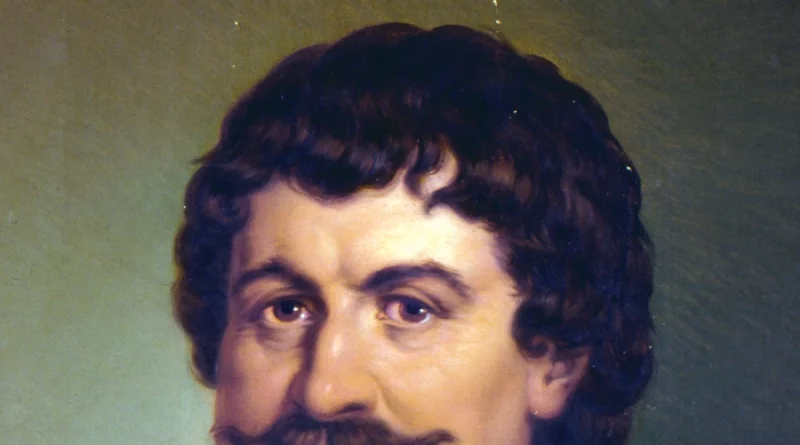Rigas Velestinlis
Rigas Velestinlis: The age of revolution through the intertexts of the enlighteners and their reception
A discussion between historian Vangelis Karamanolakis and journalist Dimitris Psarras, during a show on the Sto Kokkino radio station entitled “Rigas Velestinlis in the world of revolutions”, broadcast on 7 March 2021,[1] was arguably one of the most interesting conversations about the modern Greek Enlightenment held during the bicentenary year. This is because the discussion, prompted by the publication of Psarras’ book How did Rigas think? A return to the sources,[2] was not limited to literary issues regarding Rigas’ sources and influences. The tracing of the reception of both the texts and the general form of Rigas to today formed the central theme of the show, which raised critical questions on the reception of the Greek Revolution (1821) today on the occasion of its bicentenary.
Velestinlis received the enlightening stimuli from Voltaire, d’Alembert and many other enlighteners and conveyed the ideas to the Greek people through his personal prism.
An important part of Rigas’ work are the translations of the Enlightenment texts. Translation is not necessarily a passive process. As Psarras aptly observes, it is crucial to consider Rigas’ choices in terms of the texts he translates. Rigas “intervenes” in the texts, converses with the authors and attributes in his personal way the ideas that he believes should be communicated to the Greek people. It is reasonable, then, to consider the wide field that opens up for the study of the Age of Revolution using the theoretical tools of literary intertextuality, the connection in-between different cultures through their literature.[3]
Rigas’ contribution to Greek literature corresponds to the pattern of the other Greek enlighteners. It is worth remembering the letters of Adamantios Korais to Smyrna: Korais broadcasts the news of the French Revolution from Paris almost in a journalistic way, always caring to inject his literary stimuli and nodding to the Greek people to act accordingly. As the two interlocutors point out, both Korais and Rigas were persons of various, different and contradictory interpretations from time to time. Underlining the church’s opposition to the texts and revolutionary ideas of Rigas, Psarras proceeds to the present and ponders the reasons why the enlightener is hardly accepted by conservative ideology. Rigas’ vision envisioned a holistic struggle against the political regime. Rigas spoke of the unity of the people, a unity that would transcend the differences of religion and ethnicity. It is worthwhile, at this point, to quote a few passages from the Constitution (1797), in which Rigas’ vision is evident: “The Greeks … accept all the wronged foreigners and all those expelled from their homeland because they struggle for freedom” (Article 120). In a similar vein, he calls on Greeks to oppose tyrannical political regimes: “The Greeks … reject and do not care for tyrants” (article 120). Psarras points out that Rigas’ call for revolution was addressed to both Greeks and Turks, with the aim of overthrowing the sultan.
The humanitarian vision of Rigas Velestinlis resurfaced in the bicennential year and calls for new readings of the works of the Greek enlightener. Thus, the rich discussion on Sto Kokkino serves as a great stimulus for launching modern approaches and reflections.
Anna Palikidou, PhD candidate in modern Greek philology at the Department of Greek Philology, Democritus University of Thrace
[1] Vangelis Karamanolakis and Dimitris Psarras, “Ο Ρήγας Βελεστινλής στον κόσμο των επαναστάσεων” [Rigas Velestinlis in the world of revolutions], Sto Kokkino, 7 March 2021, https://soundcloud.com/aski-6/732021a.
[2] Dimitris Psarras, Πως συλλογάται ο Ρήγας; Επιστροφή στις πηγές [How did Rigas think? A return to the sources] (Athens: Polis, 2020).
[3] On intertextuality, see Gérard Genette, Παλίμψηστα: Η λογοτεχνία δευτέρου βαθμού [Palimpsests: Literature in the Second Degree], trans. Vassilis Patsogiannis (Athens: MIET, 2018).

